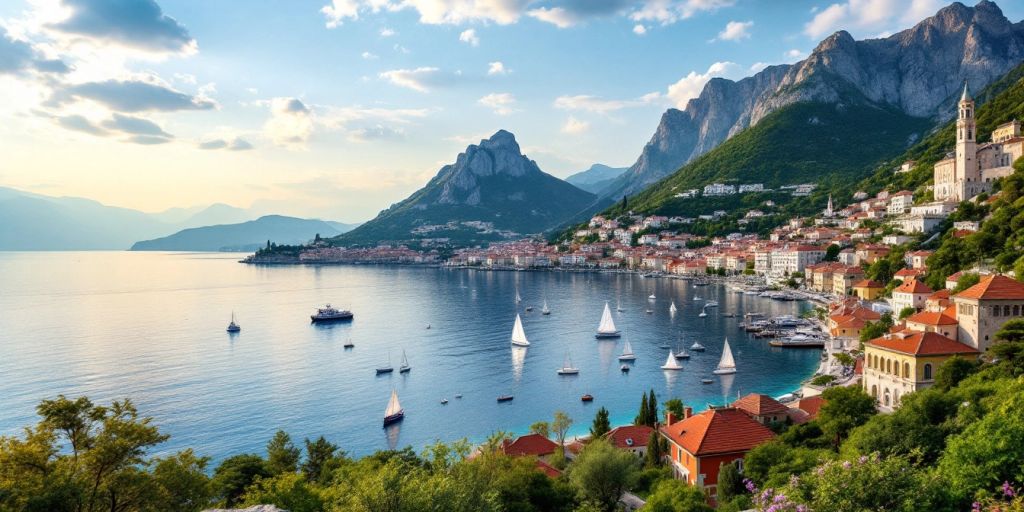Montenegro is making significant strides toward European Union (EU) membership, as highlighted in the recent European Commission report. The report outlines both the progress made and the challenges that remain, emphasizing the need for continued reforms and political stability to achieve the goal of EU accession by 2028.
Key Takeaways
- Montenegro received the most positive report from the European Commission among regional candidates.
- Key areas of progress include judicial reforms, anti-corruption measures, and media freedom.
- Political consensus is crucial for advancing EU-related reforms.
- The government aims to close four negotiation chapters by the end of the year.
Overview of Progress
The European Commission’s latest report on Montenegro marks a pivotal moment in the country’s EU accession journey. It acknowledges the government’s efforts in stabilizing the political landscape and implementing necessary reforms. The report indicates that Montenegro is moderately prepared in various areas, including public administration, the judiciary, and the fight against corruption.
The report highlights that while the electoral process has shown improvement, there are still significant reforms needed in the legal framework governing elections. The government is urged to address the recommendations from the Organization for Security and Co-operation in Europe (OSCE) to enhance transparency and democratic standards.
Political Stability and Reforms
Since the formation of the new government, Montenegro has experienced a shift towards political stability. The parliamentary majority has facilitated the adoption of key EU-related legislation, although tensions and inter-ethnic polarization remain challenges that could impact future progress.
The government has established a new negotiation structure to coordinate EU accession efforts effectively. However, internal conflicts among ministers have raised concerns about the overall effectiveness of the government. Strengthening the role of civil society organizations (CSOs) in policy-making is also essential for fostering a more inclusive governance approach.
Economic Developments
Montenegro’s economy has shown resilience, with strong growth and a small budget surplus reported in 2023. However, fiscal vulnerabilities persist due to high public financing needs and social spending pressures. The government is working to improve the business environment and prepare for the reform of state-owned enterprises (SOEs).
Despite these advancements, the education system faces challenges that hinder the country’s ability to compete effectively in the EU market. The government is encouraged to diversify its production base and enhance the competitiveness of local firms.
Future Outlook
Looking ahead, the European Commission has proposed the establishment of a technical working group to draft the Accession Agreement with Montenegro. This proposal is contingent upon the country’s continued progress in implementing reforms and maintaining political consensus.
The goal of closing several negotiation chapters by the end of the year is ambitious but achievable, provided that the government remains focused on its EU integration agenda. The support from EU leaders, including President Ursula von der Leyen, underscores the importance of Montenegro’s commitment to the accession process.
In conclusion, while Montenegro has made commendable progress on its path to EU membership, the road ahead requires sustained efforts in governance, economic reform, and social inclusion. The upcoming months will be critical in determining the country’s readiness to join the EU by 2028.
Sources
- Key findings of the 2024 European Commission Report on Montenegro – European Western Balkans, European Western Balkans.
- The European Commission proposes Montenegro’s EU Accession Agreement – Sarajevo Times, Sarajevo Times.
- Montenegro makes good progress on EU accession – EC | Montenegro Politics News | SeeNews, SeeNews.
- Montenegro will enter the EU in four years? She received the most positive report in the region, here’s what she has yet to do – Free Press, Слободен печат.
- Unprecedentedly positive European Commission Report on Montenegro, Vlada Crne Gore – GOV.ME.






